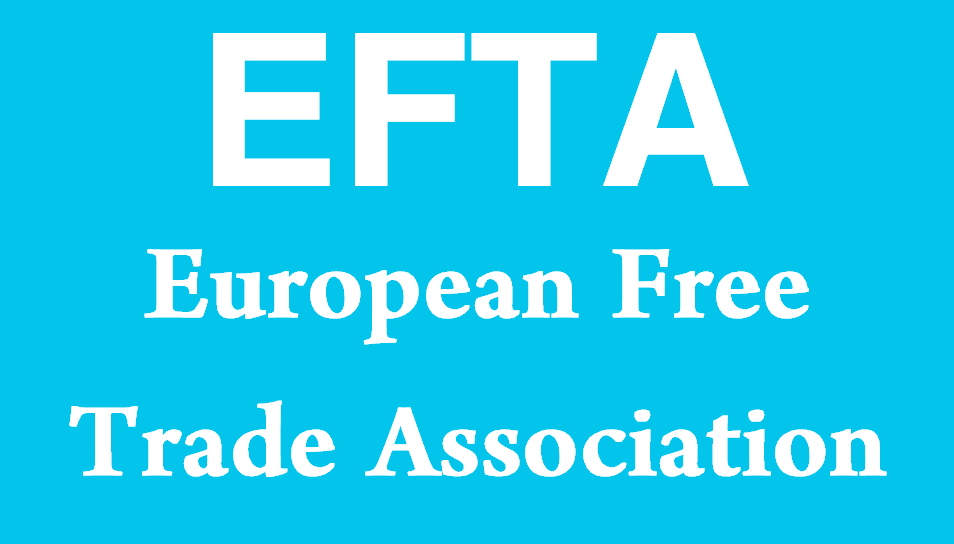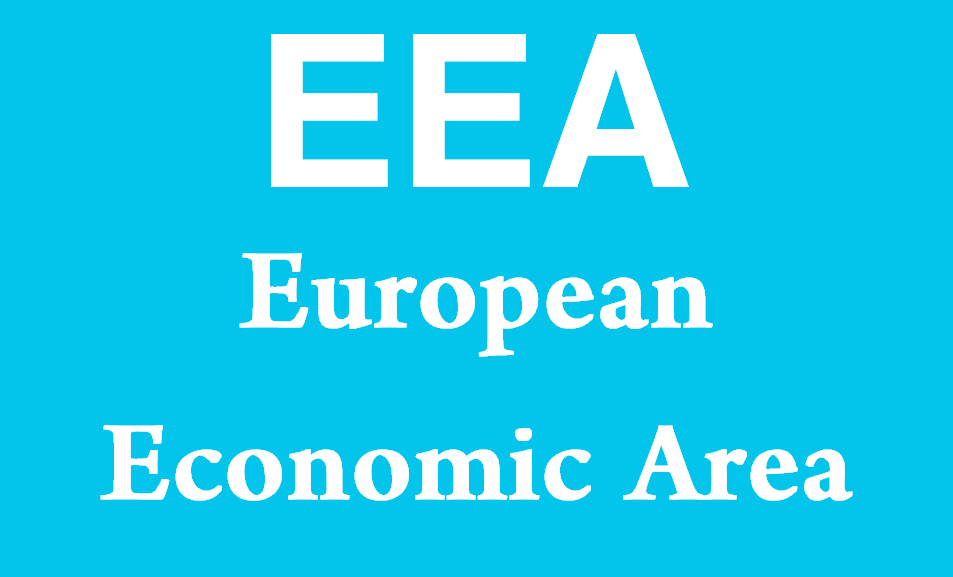What Does EBF Stand For?
EBF stands for “European Banking Federation.” This is an industry association that represents the interests of the banking sector across Europe, focusing on promoting financial stability, economic growth, and the development of sound banking practices.

Comprehensive Explanation of European Banking Federation
The European Banking Federation (EBF) is a leading industry association that represents the interests of the banking sector across Europe. Founded in 1960, the EBF plays a crucial role in shaping banking policies and regulations, advocating for the industry, and promoting best practices among its members.
History and Evolution of EBF
Origins and Founding
The EBF was established in 1960 to provide a unified voice for the European banking industry. Its founding members included national banking associations from various European countries, aiming to foster collaboration and address common challenges.
Expansion and Membership
Over the decades, the EBF has expanded its membership to include national banking associations from all EU member states, as well as several non-EU countries. This broad membership base allows the EBF to effectively represent the diverse interests of the European banking sector.
Objectives and Roles of the European Banking Federation
Advocacy and Representation
One of the primary objectives of the EBF is to advocate for the banking sector’s interests at the European level. The EBF engages with policymakers, regulators, and other stakeholders to influence the development of banking regulations and policies that promote financial stability and economic growth.
Promoting Best Practices
The EBF promotes best practices among its members by facilitating the exchange of knowledge and expertise. This includes organizing conferences, workshops, and training programs on various banking-related topics.
Enhancing Financial Stability
The EBF works towards enhancing financial stability in Europe by contributing to the development of robust regulatory frameworks and risk management practices. This includes collaborating with international organizations and participating in global regulatory discussions.
Key Activities and Initiatives of EBF
Regulatory Advocacy
The EBF actively engages in regulatory advocacy by providing input on proposed regulations and policies. This includes submitting position papers, participating in consultations, and engaging in dialogue with regulators and policymakers.
Research and Analysis
The EBF conducts research and analysis on various banking-related issues, such as financial stability, digitalization, and sustainability. The findings from these studies are used to inform policy discussions and support the development of evidence-based regulations.
Industry Collaboration
The EBF fosters collaboration among its members and other industry stakeholders through various initiatives. This includes setting up working groups and committees to address specific topics, such as anti-money laundering, cybersecurity, and consumer protection.
Impact of the European Banking Federation
Influencing Policy and Regulation
The EBF has played a significant role in shaping European banking regulations and policies. Through its advocacy efforts, the EBF has influenced key regulatory developments, such as the implementation of the Basel III framework and the development of the EU Banking Union.
Promoting Industry Standards
The EBF has been instrumental in promoting industry standards and best practices. This has helped to enhance the quality and consistency of banking services across Europe, benefiting both banks and their customers.
Enhancing Financial Stability
The EBF’s efforts to enhance financial stability have contributed to a more resilient banking sector in Europe. By advocating for robust regulatory frameworks and risk management practices, the EBF has helped to mitigate systemic risks and promote sustainable growth.
Challenges and Future Directions
Adapting to Digitalization
One of the key challenges facing the EBF is adapting to the rapid pace of digitalization in the banking sector. This includes addressing issues related to cybersecurity, data privacy, and the emergence of fintech companies.
Navigating Regulatory Complexity
The EBF must navigate an increasingly complex regulatory environment, characterized by overlapping regulations and evolving requirements. This requires ongoing engagement with regulators and policymakers to ensure that regulations are effective and proportionate.
Promoting Sustainable Finance
The EBF is committed to promoting sustainable finance and supporting the transition to a low-carbon economy. This includes advocating for policies that encourage green investments and integrating environmental, social, and governance (ESG) factors into banking practices.
Notes to Importers
Introduction
Importing goods into a country involves navigating a complex web of regulations and requirements. This section provides comprehensive notes for importers, covering key considerations, legal requirements, and best practices to ensure a smooth importing process.
Understanding Import Regulations
Customs Regulations
Each country has its own set of customs regulations that importers must follow. These regulations include documentation requirements, duties and taxes, and inspection procedures. It is crucial for importers to be familiar with the customs regulations of the destination country to avoid delays and penalties.
Import Licenses and Permits
Certain goods may require import licenses or permits before they can be brought into the country. Importers must ensure that they obtain the necessary licenses and permits for their products. Failure to do so can result in the confiscation of goods or fines.
Documentation Requirements
Bill of Lading
The bill of lading is a key document in the import process. It serves as a receipt for the goods shipped, a contract of carriage, and a document of title. Importers must ensure that the bill of lading contains accurate and complete information.
Commercial Invoice
The commercial invoice provides details about the goods being imported, including the description, quantity, value, and terms of sale. This document is used by customs authorities to assess duties and taxes. Importers must ensure that the commercial invoice is accurate and complies with the requirements of the destination country.
Packing List
The packing list provides information about the contents of each package, including the weight, dimensions, and quantity of goods. This document helps customs authorities verify the accuracy of the shipment and conduct inspections if necessary.
Legal Requirements
Compliance with Standards
Imported goods must comply with the standards and regulations of the destination country. This includes product safety standards, labeling requirements, and environmental regulations. Importers must ensure that their products meet these standards to avoid rejection or recalls.
Payment of Duties and Taxes
Importers are responsible for paying duties and taxes on imported goods. The amount of duties and taxes depends on the classification of the goods and their value. Importers must be aware of the applicable rates and ensure timely payment to avoid penalties.
Best Practices for Importers
Establishing Reliable Suppliers
One of the key factors in successful importing is establishing reliable suppliers. Importers should conduct thorough due diligence to ensure that their suppliers can deliver quality products on time. Building strong relationships with suppliers can also help in negotiating better terms and resolving issues.
Understanding Incoterms
Incoterms (International Commercial Terms) define the responsibilities of buyers and sellers in international trade. Importers should be familiar with Incoterms to understand their obligations and avoid misunderstandings. Common Incoterms include FOB (Free on Board), CIF (Cost, Insurance, and Freight), and DDP (Delivered Duty Paid).
Insurance Coverage
Importers should obtain adequate insurance coverage for their shipments to protect against potential risks such as damage, loss, or theft. Marine insurance is commonly used to cover goods in transit. It is important to understand the terms and conditions of the insurance policy to ensure comprehensive coverage.
Sample Sentences Containing EBF and Their Meanings
- “The EBF is advocating for stronger financial regulations to enhance market stability.”
- Meaning: The European Banking Federation is promoting more stringent financial rules to improve the stability of financial markets.
- “As a member of the EBF, the bank participates in various industry discussions and initiatives.”
- Meaning: By being part of the European Banking Federation, the bank engages in different industry-related conversations and projects.
- “The EBF’s latest report highlights the need for digital transformation in the banking sector.”
- Meaning: The European Banking Federation’s recent publication emphasizes the importance of adopting digital technologies in banking.
- “The EBF conference on sustainable finance attracted participants from all over Europe.”
- Meaning: The European Banking Federation’s event focused on sustainable finance drew attendees from various parts of Europe.
- “Joining the EBF has allowed the bank to stay updated on regulatory changes and industry trends.”
- Meaning: Being a member of the European Banking Federation has helped the bank remain informed about new regulations and trends in the industry.
Other Meanings of EBF
| Acronym | Full Form | Description |
|---|---|---|
| EBF | European Banking Federation | Industry association representing the banking sector across Europe. |
| EBF | Electronic Beam Furnace | A type of furnace used in manufacturing processes involving electron beams. |
| EBF | Extended Body Frame | A vehicle design featuring an elongated chassis for additional space or capacity. |
| EBF | Enhanced Binary Format | A digital format that provides improved data compression and storage efficiency. |
| EBF | Experimental Biology Facility | A research facility dedicated to conducting experimental biology studies. |
| EBF | Exercise-Based Functionality | A training approach that focuses on improving functional fitness through exercise. |
| EBF | Event-Based Forecasting | A forecasting method that relies on predicting events to estimate future trends. |
| EBF | European Bioplastics Federation | An association promoting the use and development of bioplastics in Europe. |
| EBF | Energy Balance Formula | A formula used to calculate the energy balance in a system, considering input and output. |
| EBF | Executive Business Forum | A platform for senior executives to discuss business strategies and trends. |
| EBF | Emergency Backup Facility | A facility designed to provide backup support during emergencies or system failures. |
| EBF | Enhanced Biometric Features | Advanced biometric identification technologies with improved accuracy and security. |
| EBF | Environmental Benefit Fund | A fund dedicated to financing projects that provide environmental benefits. |
| EBF | Educational Broadcasting Foundation | An organization that supports educational programming and broadcasting initiatives. |
| EBF | Economic Benefit Factor | A metric used to assess the economic advantages of a particular action or investment. |
| EBF | Elastic Buffer Flow | A data flow management technique used in telecommunications and computing. |
| EBF | Emergency Breathing Facility | A device or system that provides breathing support in emergency situations. |
| EBF | Enhanced Business Functionality | Improved or advanced features in business software or systems. |
| EBF | Extended Benefit Fund | A fund that provides extended benefits, such as insurance or pensions, to eligible individuals. |
| EBF | Enzyme Binding Factor | A molecule or substance that facilitates the binding of enzymes in biochemical reactions. |





